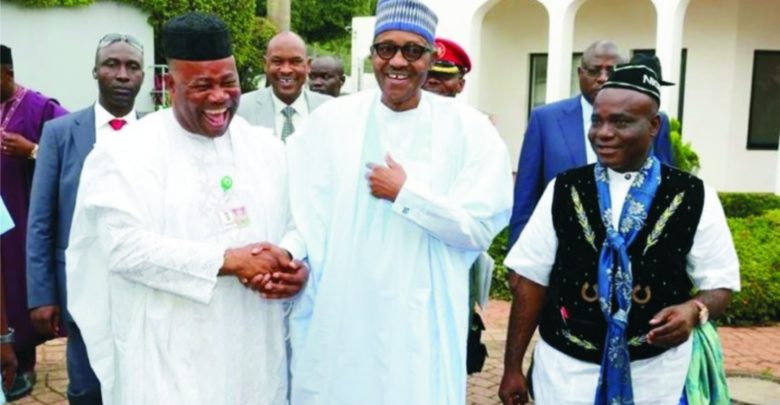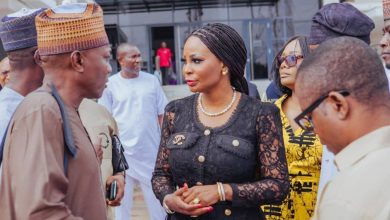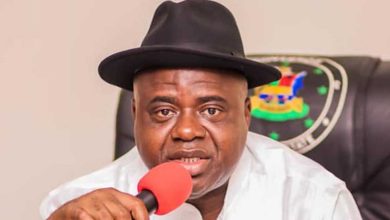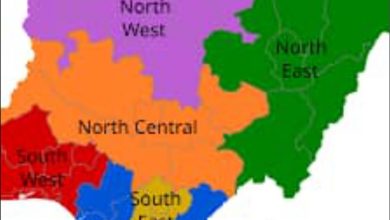
Even following President Muhammadu Buhari’s sacrosanct imperative of last week that saw the technical knockout of the duly screened Odubu-led Niger Delta Development Commission (NDDC), not many Nigerians are convinced that the triumph of the Interim Management Committee (IMC) over the board signals the end of what could best be described as horse-trading between the powers that has lasted for over three months. Nigerians still believe it s the usual game of interest amongst the masters that has assumed a ridiculous dimension.
While the situation did not surprise many analysts who have followed contemporary trends of strategic and advantageous allocation of interest as part of the organic and administrative cankerworms in the blood stream of the Commission, it however pointed to how personal and political interests of an infinitesimal few most times circumscribe or truncate collective concerns of the greater majority.
Recall that last week, after months of hostilities between the Akpabio-weaned Interim Management Committee and the Presidency on one hand and the Senate and House of Representatives on the other side, President Buhari finally stepped into the fray with the ultimate order that everything about the new NDDC Board had to be suspended tentatively until, by that directive, a new board was recomposed. The latest development was contained in a statement on Thursday, December 19, 2019, by the Special Adviser on Media and Publicity to the President, Mr. Femi Adesina.
By that action, it meant that the President, for the first time in about three months, openly and officially, validated the status and action of the IMC. According to the release, the supervisory power over the commission will continue to rest with the Minister of Niger Delta Affairs, Sen. Godswill Akpabio. Although the statement was not exact about the lifespan of the stop-gap committee, it was however disclosed that the IMC would function until the forensic audit of the accounts and activities of the commission, which the President ordered earlier in the year, shall have been completed.
That singular pronouncement promptly overrode both the earlier reservations and defiance of Members of the National Assembly that saw them refused to acknowledge the Dr. Joi Nunieh-led IMC as a legal and functional entity and also turned down the 2020 budget of the NDDC. Although the House of Representatives later rescinded its position and agreed to look into the budget, it was as good as having done nothing because it emerged from the meeting with stiffer conditions the board needed to fulfil before the said budget could be appraised.
The presidential order also confirmed why Dr. Joy Nunieh, the MD of the controversial three-man IMC, was so audacious and full of herself that she twice did not only rebuff the invitations by the Senate to appear before the Senate Committee on NDDC, led by Peter Nwaoboshi for screening and confirmation, but has also manifested continued disdain for anything that could have threatened her newfound position of authority.
Except that the Presidency perhaps schemed it to be that way, right from the start, it must have been obvious that certain principles that guide the formation of the NDDC board were deliberately flouted. One of such was that the President ought to have consulted the Council of Advisers in the Niger Delta after he had received names of nominees for the NDDC Board, following which he would have incorporated their contributions into his final decision before forwarding the ultimate list to the National Assembly.
Again, although the President is purported to have had a tete-a-tete with a caucus of the National Assembly, whereby he is said to have expressed his intention to withhold the inauguration of the screened NDDC board through a stay of order, it was questionable that the Minister of the Niger Delta Affairs, Sen. Godswill Akpabio, was apparently given too much authority in constituting the IMC the same day that Senate was considering issues on the matter. Some have described the melodrama as a needless show of power that showed lacked of effective synergy between the powers and respect for constituted authorities as politics might dictate. But that was just an argument.
So as it stands, until perhaps sorted out later assuming the fighters have truly sheathed their swords’, the NDDC does not have a statutory budget for 2020. This might even be worsened by the fact its 2019 budget has been another mountain of controversies which, according to findings, is late by 14 months by today. The Presidency ought to be provident and proactive in averting ugly situations like this in the future.
Hence, parts of the recommendations by the House of Reps to the IMC were that it has to first present details of the 2019 budget and also ensure that all cash flow, expenditures and contract papers which must contain names of contractors and nature of work within the 2019 fiscal year were presented to the Olabunmi Tunji-Ojo-led House Committee on the NDDC.
Meanwhile, the Senate which screened the board since October 30, 2019 did not make any official statement on the latest development before embarking on its last recession for 2019.




